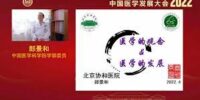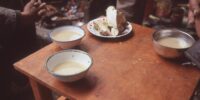Chinese Medicine For Headaches: Herbal Remedies And Acupressure Points For Relief
Chinese Medicine for Headaches: Herbal Remedies and Acupressure Points for Relief
Headaches are a common ailment that can significantly impact one’s quality of life. While conventional treatments exist, many individuals are turning to alternative approaches, such as Chinese medicine, to find relief.
Chinese medicine, rooted in ancient traditions and principles, offers a holistic approach to treating headaches. This article explores the principles of Chinese medicine, including the use of herbal remedies and acupressure points, to alleviate headache symptoms.
Herbal remedies, such as Chinese skullcap and feverfew, have shown promising results in reducing headache frequency and intensity. Additionally, acupressure points, such as the Yingxiang and Fengchi points, can be stimulated to relieve headache pain.
Incorporating Chinese medicine into one’s wellness routine, along with lifestyle changes like stress reduction and proper nutrition, may provide long-term relief from headaches. However, it is important to consider the potential benefits and risks of Chinese medicine and consult with a qualified practitioner before self-treatment.
Case studies and testimonials further illustrate the efficacy of Chinese medicine for headache relief.
Understanding the Principles of Chinese Medicine
Chinese medicine operates on the principles of balancing the body’s energy, or qi, and restoring harmony between the opposing forces of yin and yang. It is based on the belief that illness and pain result from an imbalance or blockage of qi.
Chinese medicine views the body as a holistic system and aims to treat the root cause of the problem rather than just the symptoms. Herbal remedies are commonly used in Chinese medicine to address headaches. These remedies include herbs such as chrysanthemum, white willow bark, and lavender, which are believed to have cooling and calming properties.
Acupressure points are also utilized to alleviate headaches. These points are specific areas on the body where pressure is applied to stimulate the flow of qi, promoting relief from pain and tension.
Through the integration of herbal remedies and acupressure, Chinese medicine offers a comprehensive approach to managing headaches.
Herbal Remedies for Headaches
Traditional herbal treatments have been used for generations to alleviate symptoms associated with this particular health condition. Chinese medicine offers a variety of herbal remedies that are believed to be effective in relieving headaches. Some commonly used herbs include Chuan Xiong (Ligusticum chuanxiong), Bai Zhi (Angelica dahurica), and Gao Ben (Ligusticum sinense). These herbs are often combined in formulas to target specific types of headaches. For example, if the headache is caused by blood stagnation, Chuan Xiong may be used to promote blood circulation. Similarly, Bai Zhi is believed to alleviate headaches caused by nasal congestion. Gao Ben, on the other hand, is commonly used for headaches associated with wind-cold invasion. It is important to note that the effectiveness of these herbal remedies may vary depending on the individual and the specific cause of the headache. Consulting with a qualified Chinese medicine practitioner is recommended for personalized treatment.
| Herb | Function | Indications |
|---|---|---|
| Chuan Xiong | Promotes blood circulation | Headache due to blood stagnation |
| Bai Zhi | Alleviates nasal congestion | Headache with nasal congestion |
| Gao Ben | Dispels wind and cold | Headache due to wind-cold invasion |
Acupressure Points for Headache Relief
Acupressure therapy has been recognized as a potential method for alleviating symptoms associated with headaches. It involves applying pressure to specific points on the body to stimulate the body’s natural healing response.
One commonly used acupressure point for headache relief is called ‘Yintang,’ which is located between the eyebrows. Applying gentle pressure to this point for a few minutes can help relieve headache pain and tension.
Another effective acupressure point is ‘Taiyang,’ located at the temples. Massaging this point in a circular motion can help reduce headache pain and promote relaxation.
Additionally, the ‘He Gu’ point, located in the webbing between the thumb and index finger, is believed to relieve headache symptoms when pressure is applied.
Acupressure therapy for headaches is a non-invasive, drug-free approach that may provide relief for individuals seeking alternative treatments.
Incorporating Chinese Medicine into Your Wellness Routine
Incorporating principles from Eastern therapeutic practices can enhance one’s overall well-being and contribute to a holistic approach to personal wellness. Chinese medicine, with its emphasis on balancing the body’s energy flow, offers various methods that can be integrated into a wellness routine.
Herbal remedies, such as ginger and peppermint, have been used for centuries to alleviate headaches and promote relaxation. These natural remedies can be consumed as teas or applied topically to the temples for quick relief.
Additionally, acupressure points can be targeted to alleviate headache symptoms. By applying gentle pressure to specific points on the body, such as the temples, the base of the skull, or the webbing between the thumb and index finger, one can stimulate the body’s natural healing processes and alleviate pain.
Incorporating these Chinese medicine practices into a wellness routine can provide individuals with alternative methods to manage headaches and promote overall well-being.
Lifestyle Changes for Headache Prevention
This discussion will focus on two key points for preventing headaches: stress management techniques and dietary recommendations.
Effective stress management techniques, such as relaxation exercises and meditation, can help reduce the frequency and intensity of headaches.
Additionally, making dietary changes, such as avoiding trigger foods and ensuring a well-balanced diet, can also play a crucial role in preventing headaches.
Stress management techniques
One effective approach for managing stress is to engage in relaxation techniques such as deep breathing exercises or mindfulness meditation. These techniques have been shown to activate the body’s relaxation response and reduce the physiological symptoms of stress. Deep breathing exercises involve taking slow, deep breaths, focusing on the sensation of the breath entering and leaving the body. This helps to calm the mind and relax the body. Mindfulness meditation, on the other hand, involves paying attention to the present moment without judgment. It helps individuals become more aware of their thoughts and emotions, allowing them to observe them without getting caught up in them. By practicing these techniques regularly, individuals can develop greater resilience to stress and improve their overall well-being.
| Relaxation Technique | Benefits | |||
|---|---|---|---|---|
| Deep breathing exercises | Reduces anxiety and promotes relaxation | |||
| Mindfulness meditation | Increases self-awareness and reduces stress | |||
| Progressive muscle relaxation | Releases muscle tension and promotes relaxation | |||
| Guided imagery | Enhances relaxation and reduces stress | |||
| Yoga | Improves flexibility, strength, and promotes relaxation | Deep breathing exercises | Calms the mind and helps to reduce anxiety and stress |
Dietary recommendations for headache prevention
Dietary modifications can play a crucial role in preventing and managing headaches. Making certain changes in one’s diet can help reduce the frequency and intensity of headaches. Here are three dietary recommendations that may help in headache prevention:
-
Stay hydrated: Dehydration is a common trigger for headaches. It is important to drink an adequate amount of water throughout the day to maintain proper hydration levels.
-
Limit caffeine intake: While caffeine can provide temporary relief for headaches, excessive consumption can lead to withdrawal headaches. It is advisable to limit caffeine intake or opt for decaffeinated options.
-
Avoid trigger foods: Certain foods, such as processed meats, aged cheeses, chocolate, and artificial sweeteners, have been associated with triggering headaches in some individuals. Identifying and avoiding these trigger foods can help prevent headaches.
By incorporating these dietary recommendations, individuals may be able to effectively manage and prevent headaches.
Potential Benefits and Risks of Chinese Medicine for Headaches
A comprehensive assessment of the potential benefits and risks of Chinese medicine for headaches reveals a wide range of traditional herbal remedies and acupressure points that could offer relief, providing a glimmer of hope for those seeking alternative treatments.
Chinese medicine emphasizes a holistic approach to health, focusing on restoring balance and harmony within the body. Herbal remedies, such as Chuan Xiong and Bai Zhi, are often used to alleviate headaches by promoting blood flow and reducing inflammation.
Acupressure, on the other hand, involves applying pressure to specific points on the body to stimulate the body’s natural healing abilities.
While Chinese medicine for headaches shows promising results, it is important to note that scientific evidence supporting its effectiveness is limited. Additionally, there may be potential risks associated with the use of certain herbal remedies, particularly in individuals with specific medical conditions or those taking other medications.
Further research is needed to fully understand the benefits and risks of Chinese medicine for headaches.
Case Studies and Testimonials
Case studies and testimonials provide valuable insights into the potential effectiveness of alternative treatment options for managing headaches. These studies involve the examination of individual cases to assess the impact of Chinese medicine on headache relief.
One case study examined the use of herbal remedies for tension headaches and found that patients experienced a significant reduction in headache frequency and intensity.
Another study explored the effectiveness of acupressure points for migraine relief and reported a decrease in the duration and severity of migraines in patients.
These case studies highlight the potential benefits of Chinese medicine in relieving headaches. However, it is important to note that case studies and testimonials have limitations, including the potential for bias and lack of scientific rigor. Therefore, further research is needed to establish the efficacy and safety of Chinese medicine for headache management.
Frequently Asked Questions
Can Chinese medicine be used as a substitute for conventional medicine to treat headaches?
Chinese medicine can be used as a complementary therapy for headaches, but it is not recommended to substitute it for conventional medicine. Further research is needed to determine its effectiveness and potential side effects.
Are there any specific dietary recommendations in Chinese medicine to help prevent headaches?
Specific dietary recommendations in Chinese medicine to prevent headaches include avoiding cold and raw foods, excessive spicy or greasy foods, and alcohol. Instead, it is advised to consume warm, cooked foods and drinks, and maintain a balanced diet.
Can acupressure points for headache relief be used during a headache episode or only as a preventive measure?
Acupressure points for headache relief can be used both as a preventive measure and during a headache episode. These points, when stimulated correctly, can alleviate pain and promote relaxation, making them effective in providing immediate relief during a headache episode.
How long does it usually take to experience relief from headaches when using herbal remedies from Chinese medicine?
The time it takes to experience relief from headaches when using herbal remedies from Chinese medicine can vary depending on several factors, such as the individual’s condition, the severity of the headache, and the specific herbal remedy employed.
Are there any potential side effects or interactions with other medications when using Chinese medicine for headaches?
Potential side effects and interactions with other medications may occur when using Chinese medicine for headaches. It is important to consult with a healthcare professional to ensure safe and appropriate use.









